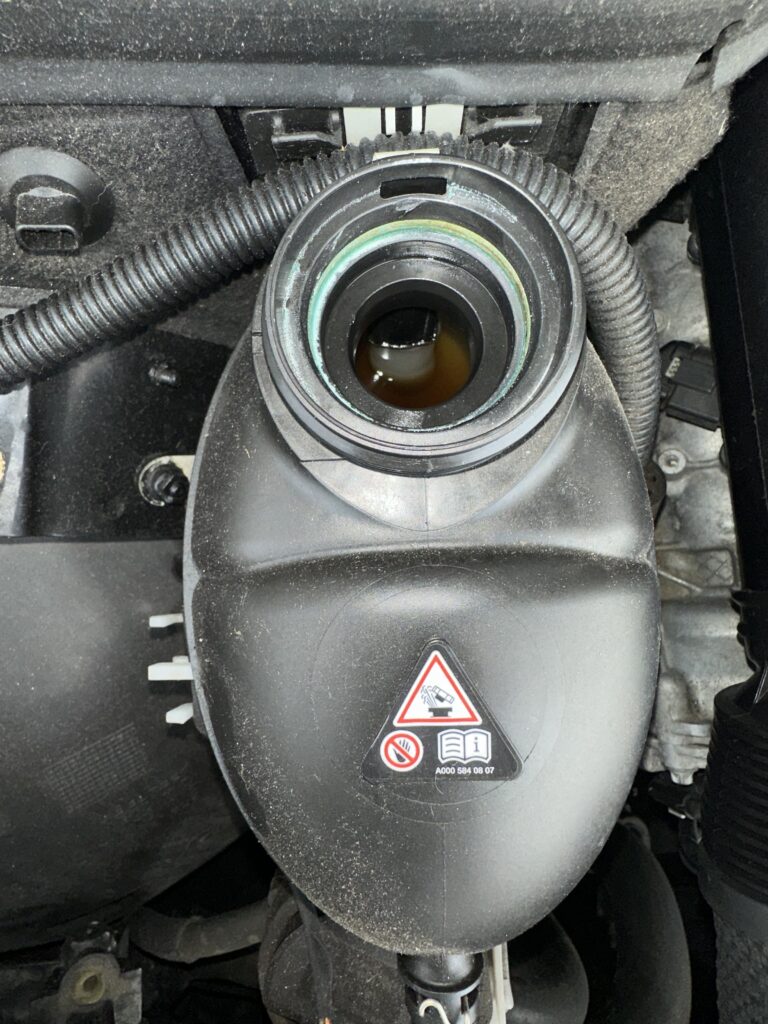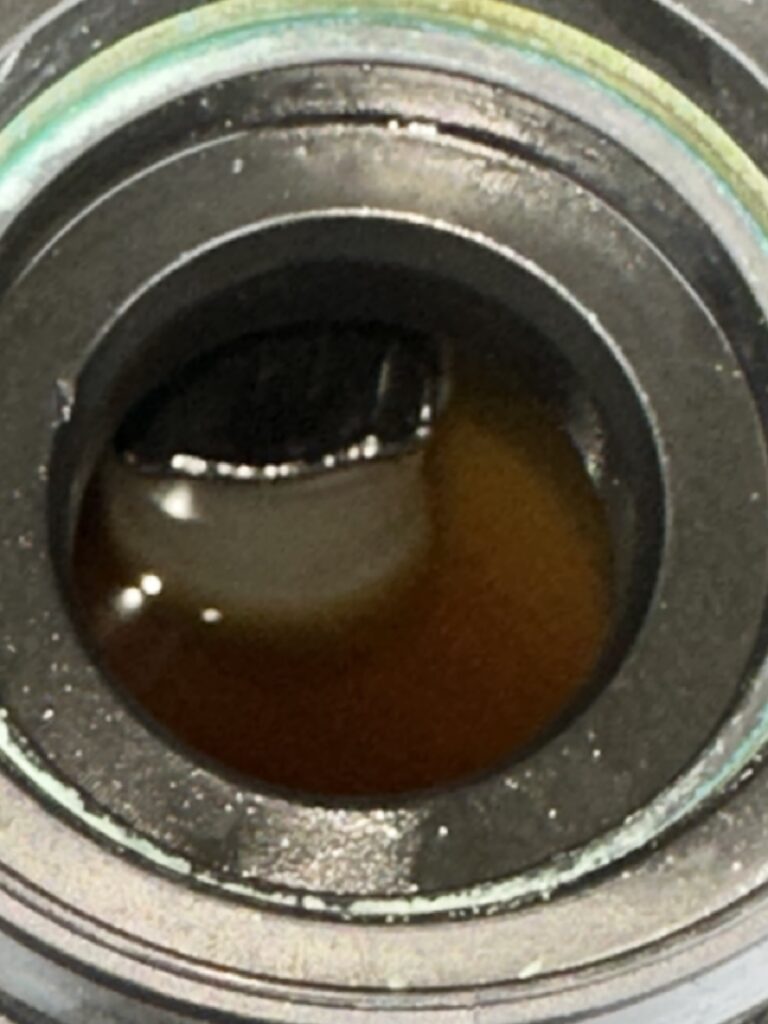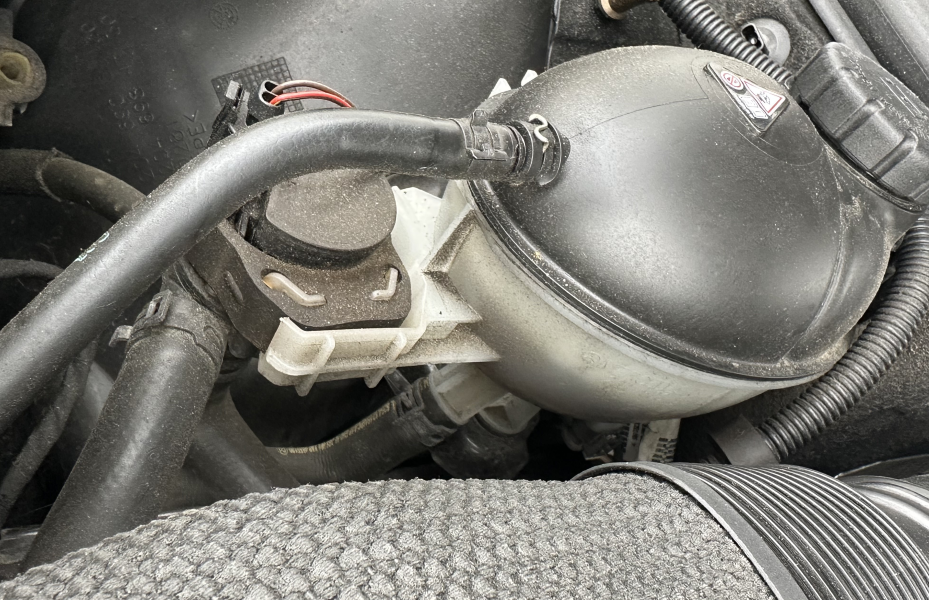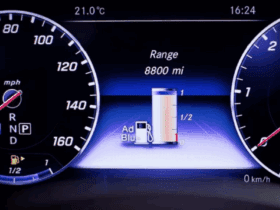Table of Contents
Coolant Brown in Mercedes: Causes, Risks & How to Fix It
Coolant is one of the most critical fluids in your Mercedes-Benz. It regulates engine temperature, prevents overheating in summer, and stops freezing in winter. When it is in good condition, coolant is usually green, yellow, red, or orange depending on its type. But when you notice coolant turning brown, it’s a clear warning sign that something is wrong inside your cooling system.
This guide explores why Mercedes coolant turns brown, the risks involved, and the most effective repair solutions. Using both general explanations and Mercedes-specific causes, you’ll learn how to diagnose and fix this problem before it damages your engine.
Why Is My Coolant Brown?
Brown coolant typically means contamination or fluid breakdown. Instead of circulating smoothly and protecting the engine, the coolant has been compromised by rust, oil, or chemical reaction. This reduces its ability to transfer heat and prevent corrosion, making your engine vulnerable.
The most common causes of this issue in Mercedes-Benz vehicles include:
- – Rust and corrosion from metal parts inside the radiator, water pump, or engine block.
- – Oil contamination due to a faulty head gasket, cracked cylinder head, or defective oil cooler.
- – Coolant breakdown from old or expired antifreeze.
- – Mixing incompatible coolants, which react chemically and produce sludge.
If left unchecked, brown coolant can clog passages, reduce cooling efficiency, and cause engine overheating.
What Does Brown Coolant Mean for Your Mercedes?
When coolant turns brown, it’s more than just a color change it’s a symptom of a deeper issue.
1. Rust & Corrosion:
- – Metal particles from the radiator or block mix with coolant.
- – Signs: brown tint, visible flakes, reduced flow.
2. Oil Intrusion:
- – Head gasket failure or oil-coolant exchanger leaks mix oil and coolant.
- – Signs: chocolate-milk color, sludge, rising coolant level.
3. Coolant Degradation:
- – Old coolant loses protective additives.
- – Signs: dull, muddy appearance, overheating risk.
4. Wrong Coolant or Mixing:
- – OAT and HOAT coolants don’t mix well.
- – Signs: slime, separation, reduced protection.

How to Diagnose Brown Coolant
1. Visual Inspection
- – Check the coolant reservoir and radiator.
- – Look for sludge, oil film, or rust particles.
2. Test for Contaminants
- – Use a coolant test strip or kit to check pH and contamination.
- – Oil contamination can be confirmed with chemical tests.
3. System Pressure Test
- – A mechanic can pressure-test both the oil and coolant circuits.
- – Helps confirm a head gasket, oil cooler, or housing leak.
How to Fix Brown Coolant in Mercedes
Step 1: Flush the Cooling System
- – Drain the old coolant.
- – Perform a chemical flush or multiple water flushes until clear.
- – Refill with Mercedes-approved coolant (OAT/HOAT).
Step 2: Repair Leaks or Defects
- – If a gasket or oil cooler is leaking, replace it.
- – Check radiator, thermostat housing, and hoses for cracks.
Step 3: Refill & Bleed the System
- – Use the correct coolant type (MB 325.0 or equivalent).
- – Bleed air pockets to ensure proper circulation.
Step 4: Test & Monitor
- – Start the engine, check for leaks.
- – Test-drive and monitor temperature and warning lights.
Diagnostic & Repair Workflow
| Step | Action | Purpose |
|---|---|---|
| 1 | Visual inspection of coolant reservoir | Identify sludge or discoloration |
| 2 | Pressure test oil & cooling system | Detect oil leaks or gasket failure |
| 3 | Flush cooling system thoroughly | Remove rust, sludge, or mixed fluids |
| 4 | Refill with correct Mercedes coolant | Ensure protection & compatibility |
| 5 | Test drive and monitor | Confirm repair and prevent recurrence |

Mercedes-Specific Causes of Brown Coolant
Brown coolant is common in older Mercedes or vehicles with neglected coolant maintenance. Below are typical causes and fixes:
| Cause | Symptoms | Recommended Fix |
|---|---|---|
| Rust & corrosion | Brown tint, rust flakes | Flush system; refill with MB-approved coolant |
| Old coolant | Dull/muddy appearance | Replace every 5 years/240k km |
| Oil contamination (head gasket leak) | Milky brown sludge | Pressure test & repair gasket/oil cooler |
| Mixed coolants | Slimy fluid, separation | Drain, flush, refill with correct type |
How to Prevent Brown Coolant
1. Regular Coolant Checks
- – Inspect reservoir color & level monthly.
2. Routine Flushing
- – Follow Mercedes service interval (5 years/240k km or sooner if contaminated).
3. Use the Right Coolant
- – Mercedes-Benz recommends OAT or HOAT types, never mix them.
4. Watch for Early Signs
- – Overheating, leaks, or sludge are early red flags.
DIY vs Professional Repair
| Task | DIY Possible? | Professional Recommended? |
|---|---|---|
| Inspect coolant color & level | Yes | – |
| Flush and replace coolant | Moderate | Recommended |
| Test for oil contamination | No | Yes |
| Replace head gasket / oil cooler | No | Specialist essential |
Risks of Ignoring Brown Coolant
Failing to address brown coolant can lead to:
- – Overheating & engine failure
- – Clogged radiator and heater core
- – Corroded engine block
- – Expensive head gasket or block repair
Repair costs can quickly escalate from a simple flush to thousands in engine repairs if ignored.


More Mercedes Cooling System Resources
Want to explore more causes, symptoms, and repair tips for coolant leaks, overheating, and contamination?
Learn more about Mercedes cooling system faults in our full Cooling System Guide.
Conclusion
Brown coolant in a Mercedes-Benz is a warning sign of contamination, corrosion, or oil intrusion. While a flush may solve minor issues, oil contamination or gasket failure requires immediate professional repair.
Key Takeaways:
- – Never ignore the Mercedes brown coolant problem.
- – Always use the manufacturer-approved coolant.
- – Regular maintenance prevents rust and sludge buildup.
By acting quickly, you can protect your Mercedes engine, avoid overheating, and save thousands in repair bills.
Frequently Asked Questions
1. Why is my Mercedes coolant brown?
Brown coolant often means your cooling system is contaminated. This can happen due to rust and corrosion, mixing of old degraded coolant, or oil intrusion from a faulty head gasket or oil cooler.
2. Is it safe to drive with brown coolant?
No. Driving with brown coolant is risky because it reduces cooling efficiency and may cause overheating, clogged passages, or even severe engine damage.
3. How do I fix coolant brown in my Mercedes?
The most common solution is flushing the cooling system and refilling it with Mercedes-approved coolant. If oil contamination is present, repairs such as a new head gasket or oil cooler may be necessary.
4. Can I flush brown coolant myself?
Yes, if the discoloration is caused by old coolant or rust, a DIY flush can help. However, if the coolant has a milky, oil-like appearance, professional repair is required.
5. How often should I replace coolant in a Mercedes?
Mercedes-Benz generally recommends replacing coolant every 5 years or 240,000 km (150,000 miles), whichever comes first. Always use the correct OAT/HOAT coolant type.
Author
Written by: Mercedes Expert
Automotive Technical Trainer & Mercedes-Benz Diagnostic Specialist
With years of hands-on experience repairing and diagnosing Mercedes-Benz vehicles, specializes in case-study-based troubleshooting guides that blend workshop accuracy with educational clarity.
Last Updated: August 2025






Leave a Reply